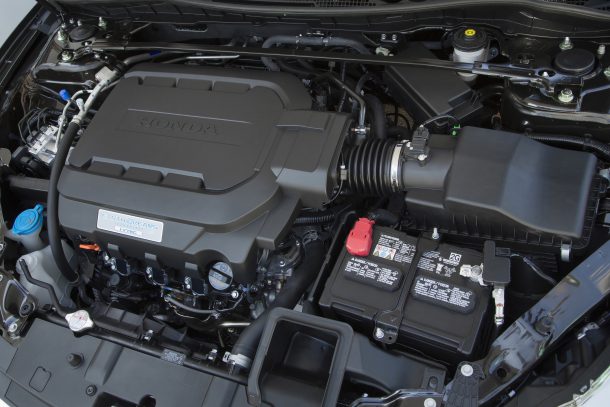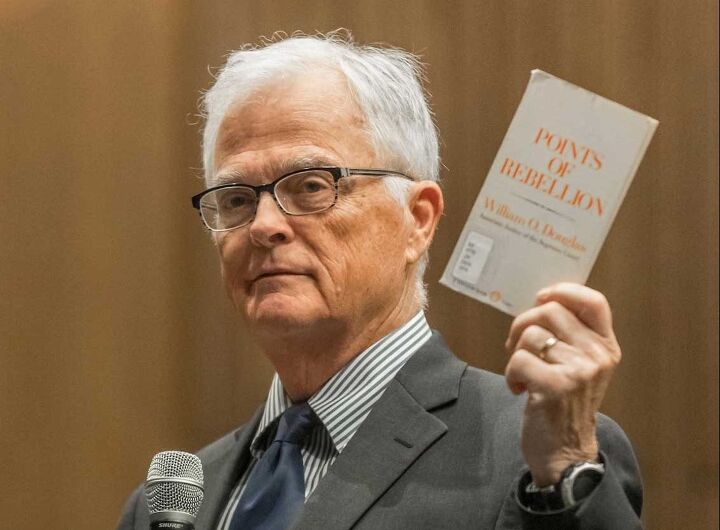#LegalAction
End of the Line: Takata, Supplier of Millions of Explosive Airbags, Files for Bankruptcy
The impending bankruptcy of Japanese airbag maker Takata Corp. has been teased at and speculated upon for months. It was never a question of whether the parts supplier would go belly-up after causing the largest automotive recall in history, but how and when.
After furnishing dozens of automakers with airbag inflators what were, in essence, improvised grenades, the multi-million unit recall has left Takata with little recourse. The company has filed for bankruptcy protection in both Japan and the United States, announcing it will sell off the majority of its remaining assets to Key Safety Systems. One of the missing assets will be the equipment relating to the company’s nefarious ammonium nitrate airbag inflators.
The devices, subject to exploding with far too much force and spraying vehicle interiors with metal shrapnel, are responsible for a minimum of 16 deaths, hundreds of injuries, and the ruination of the company.
Uber's Contract With Notorious Employee Apparently Included Bad Behavior Clause
It would seem Waymo’s case against Uber is progressing at the latter’s expense. Anthony Levandowski, the former Uber employee at the center of the intellectual property theft, was apparently covered in writing for any legal action taken against for things like… fraud and stealing trade secrets.
The clause, which is literally outlined as “Pre-Signing Bad Acts” in the contract, was part of closed documents U.S. District Judge William Alsup previously assumed would be invaluable in progressing the case. Alphabet, which owns Waymo, accused Uber of being complicit in Levandowski’s alleged theft – suggesting the ride-sharing rival intentionally hired him in the hopes he would bring inside information acquired during his tenure at Google. It was a notion Alsup also seemed more than willing to entertain.
“It remains entirely possible that Uber knowingly left Levandowski free to keep that treasure trove of files as handy as he wished [provided he keep the data on his own personal devices], and that Uber willfully refused to tell Levandowski to return the treasure trove to its rightful owner,” the judge said back in May.
Lawsuit Accuses GM of Using Defeat Devices in Duramax Diesel Pickups
Suing automakers over diesel emissions violations is quickly on its way to becoming passé.
Since Volkswagen admitted to installing software that circumvented pollution laws, regulators have been on the hunt for their next big target. While it might make their efforts seem like a bit of a witch hunt, there’s good reason to be on the lookout. Studies have shown diesel emission levels are often much higher than analysts expected, with experts attributing the results to the high probability that other automakers are skirting regulatory guidelines — likely by way of defeat devices.
Daimler, Renault, and PSA Group are all being investigated in their home countries as FCA faces legal action within the United States.
General Motors is now being sued for allegedly installing defeat devices in its trucks to sidestep emissions tests, making it the sixth major manufacturer accused of diesel cheating since 2015. However, General Motors isn’t dabbling in gray areas, acting confused, or assuring the public it will get to the bottom of the accusations. It says the claims against it are flat out wrong.
Justice Department Prepping for Lawsuit Against Fiat Chrysler
The U.S. Justice Department is preparing itself for a lawsuit against Fiat Chrysler Automobiles over, you guessed it, diesel-burning engines. Cetane-rated fuel has been a broad target for governments lately, but the forthcoming FCA suit is less concerned with what you’re burning than with how you’re burning it.
Officials are concerned the automaker may have used a defeat device after the Environmental Protection Agency accused it of using software that allowed about 104,000 diesel vehicles to emit excess emissions. The models in question are 2014-2016 Jeep Grand Cherokees and Dodge Ram 1500 trucks with 3.0-liter diesel engines.
German Prosecutors Confirm VW CEO as Focus of Official Investigation
German prosecutors verified the launch of a formal investigation involving Volkswagen Group CEO Matthias Müller and chairman Hans Dieter Poetsch due to suspected market manipulation.
While we reported on the probe last week, Müller’s inclusion was highly unexpected. It was unclear what, if anything, officials had on the CEO and why they waited until now to add him to the growing number of upper-level executives under examination.
The Stuttgart prosecutor’s office stated on Wednesday the investigation was prompted by a request from market regulator BaFin in the summer of 2016. After spending some time gathering evidence, investigators began to believe executives deliberately postponed releasing information to investors about the scale of the scandal and didn’t adequately disclose its financial consequences.
VW Group maintains the leadership had complied with disclosure rules and executives were unaware of the scope of the emissions cheating scandal when it kicked-off.
Judge Refers Uber Trade Theft Allegations to Criminal Prosecutors as Case Goes Public
Waymo’s lawsuit against Uber Technologies’ alleged theft and usage of autonomous trade secrets is going to trial.
Judge William Alsup ruled Uber could not force the case into private arbitration and is referring the matter to the United States Attorney for a very public investigation.
This is everything the ride-hailing company didn’t want.
Judge Says There's 'No Smoking Gun' in Waymo's Autonomous Car Case Against Uber
The U.S. judge hearing Alphabet and Waymo’s case against Uber Technologies over pilfered trade secrets stated Wednesday that the inquest lacked clear evidence of any wrongdoing — making his decision on whether to issue an injunction against the ride-hailing service a difficult one.
U.S. District Judge William Alsup — who has already proven himself a no-nonsense individual — explained while there was undisputed proof engineer Anthony Levandowski had downloaded 9.7 gigabytes of company files prior to leaving Alphabet Inc.’s autonomous vehicle program, there wasn’t enough to indicate he conspired directly with Uber to share those trade secrets.
With nearly the entirety of the case revolving around that singular incident, this is a major problem for Waymo.
Honda, Toyota and BMW Caught Up in U.S. Patent Violation Probe
The United States will look into components employed by some Japanese and German automakers to see if any vehicle models sold in the country violate patent laws. Probes will be conducted into 25 automakers and parts suppliers by the U.S. International Trade Commission, including Honda, Toyota, and BMW, as well as popular Japanese parts suppliers Aisin and Denso.
Intellectual Ventures II filed a complaint in March alleging thermoplastic parts used in motors, power steering units, water pumps, and other drivetrain components were being implemented in vehicles without its knowledge. It believes the companies are infringing on its patent rights and have reached out to the Trade Commission to conduct an investigation.
Uber Demotes Employee at the Core of Self-Driving Technology Lawsuit
Anthony Levandowski, the man at the nucleus of Alphabet Inc.’s intellectual property lawsuit against Uber Technologies, has abandoned his position as the team lead for the firm’s autonomous vehicle development.
Uber explained that Levandowski’s new role is less critical and has no authority over the company’s LIDAR technology, which he is accused of stealing from Alphabet’s Waymo when it was still part of Google. Since the lawsuit, Uber has done everything possible to distance itself from the man without outright firing him.
Faraday Future Facing Trademark Lawsuit Over Its Own Name
Faraday Future, which spent 2016 as the automotive poster child for bad news, continues to face a myriad of problems. In this most recent hardship, we learn Faraday couldn’t even manage to choose a company name without stirring a legal backlash.
Faraday Bicycles, which manufactures electric-assisted pedal bikes, has filed a trademark lawsuit against Faraday Future in U.S. District Court for the Northern District of California. In the complaint, filed Tuesday, the e-bike company states Faraday Future has been infringing on its name — which it officially trademarked in October 2013. The legal action follows a November claim against FF over the acquisition of its domain name and nearly endless financial woes.
VW Fined Billions of Dollars for What Looks Like the Last Time
Oh my God, it’s finally almost over. After a 10-year conspiracy and almost 600,000 rigged diesel cars, VW’s legal battle with the United States is coming to an end. Volkswagen pled guilty last month to conspiracy to commit fraud and the obstruction of justice after it was caught cheating on emissions tests in 2015, and we’ve been eagerly waiting the verdict and subsequent punishment.
Today, a U.S. judge ordered the automaker to observe three years of probation and shell out a $2.8 billion criminal fine. The sum, which Steph Willems has informed me equates to 135,168 VW Golfs — after delivery and rounding up to the closest car — is in addition to the company’s $1.5 billion in civil penalties, $4.7 billion in mandatory anti-pollution initiatives, and $11.2 billion diesel buyback program.
The Judge Hearing Waymo's Case Against Uber is a Monumental Badass
Uber has become quite an adept punching bag for journalists over the last few months. However, its unsavory actions only helped to hang itself in the corner of every garage across America while wearing an Everlast logo. At this point, it might as well say something nasty about everyone’s mother.
It isn’t just the press giving the ride-hailing and autonomous tech company a hard time, though. The judge overseeing its court case with Waymo over stolen intellectual property isn’t taking any bullshit from either company, or the litigant’s lawyers, and had some incredibly harsh words to share from behind the bench before adjourning court for the rest of April.
Supreme Court Case Could Make Patent Lawsuits Easier on Domestic Automakers
A Supreme Court ruling between two food companies may benefit the Detroit Three and its many domestic suppliers.
The case of TC Heartland LLC v. Kraft Foods Group Brands focused on where plaintiffs in an intellectual property or patent infringement dispute can file a lawsuit. Current U.S. law dictates that the plaintiff may file a patent infringement suit in any court district where the defendant does business. This has saturated the Eastern District of Texas with countless patent and I.P. lawsuits. Plaintiffs prefer the region because rural Texas juries are more likely to rule against big businesses and the district is known for expediting proceedings.
According to a January study by the Stanford Technology Law Review, only about 15 percent of cases heard in the court actually involved a patent invented within the district or had an accused party that had an office in the area. However, the Supreme Court is expected to put the kibosh on the practice by forcing plaintiffs to try cases near the defendant’s headquarters — meaning domestic automakers could have the home field advantage in future legal proceedings.
BMW Under Investigation Over Car Leasing Practices to Military Members
The U.S. Justice Department requested information from BMW AG’s leasing unit last year, hoping to get a handle on how it deals with delinquent payments from military personnel. The Servicemembers Civil Relief Act is intended to provide a wide range of protections for individuals required to enter active duty by suspending certain civil obligations, including outstanding credit card debt and auto leases.
However, BMW’s Financial Services said it doesn’t know how many of its leases might be affected by the Servicemembers Civil Relief Act’s terms. That’s not a great position to be in when federal law explicitly bans any action or penalty against currently deployed military personnel.
So Far, 2017 Just Hasn't Been Uber's Year
It would be an understatement to suggest that Uber has had a bad couple of weeks. It kicked off with a highly publicized blog posting from former engineer Susan Fowler describing intrinsic sexual harassment at the San Francisco-based ride-hailing service. This was followed by an open letter from two of its investors condemning the company for fostering poor corporate behavior and unhealthy business practices. This, of course, was fast followed by a lawsuit from Google-parent Alphabet’s Waymo that alleged Uber stole some of its driverless car technology.
That was last week. This week saw Uber CEO Travis Kalanick asking his senior vice president of engineering, Amit Singhal, to step down after it came to light that Singhal had neglected to reveal that he was the subject of an ongoing sexual harassment investigation at his previous employer Google. However, Kalanick ended up being the subject of his own controversy just a few days later.






























Recent Comments